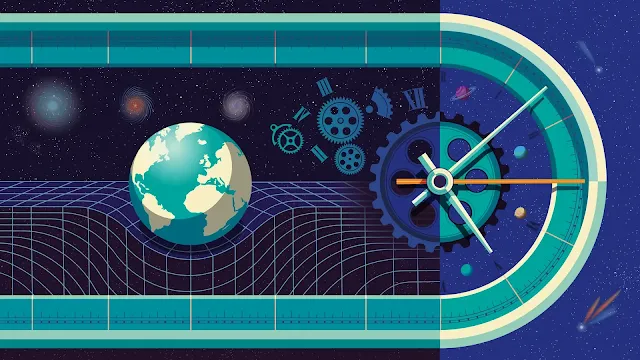In this blog post, we embark on a journey through the enigmatic concept of the space-time continuum. We'll delve into its significance, explore its relevance in the future, and uncover its intriguing connection with artificial intelligence (AI). Get ready to embark on a cosmic adventure!
1.
Understanding the Space-Time Continuum
The
space-time continuum is a fundamental concept in physics that combines the
three dimensions of space with the fourth dimension of time into a single
continuum. It forms the framework within which all physical events occur, from
the motion of celestial bodies to the passage of time itself.
2.
The Importance of the Space-Time Continuum
The
space-time continuum serves as the backbone of modern physics, providing a
unified framework for understanding the universe. It plays a crucial role in
theories such as general relativity, which describes the gravitational
interactions between massive objects, and quantum mechanics, which governs the
behavior of subatomic particles.
3.
Exploring the Future Implications
As
our understanding of the universe continues to evolve, the space-time continuum
holds immense potential for shaping the future of science and technology. From
advancements in space exploration to breakthroughs in time manipulation, the
implications are boundless.
4.
The Intersection of Space-Time Continuum and AI
Artificial
intelligence (AI) is poised to revolutionize our understanding and utilization
of the space-time continuum. AI algorithms can analyze vast amounts of data,
helping researchers uncover hidden patterns in the fabric of space and time.
Additionally, AI-powered simulations enable scientists to explore hypothetical
scenarios and predict future events with unprecedented accuracy.
5.
FAQs
1.
What exactly is the space-time continuum?
The
space-time continuum is a mathematical model that combines the three dimensions
of space (length, width, and height) with the fourth dimension of time into a
single continuum.
2.
Why is the space-time continuum important?
The
space-time continuum is crucial for understanding the fundamental workings of
the universe, from the behavior of celestial bodies to the passage of time
itself.
3.
How does the space-time continuum relate to AI?
AI
algorithms can analyze complex data sets related to the space-time continuum,
helping researchers uncover new insights and make predictions about future
events.
4.
What are some potential future applications of the space-time continuum?
Future
applications of the space-time continuum may include advancements in space
exploration, time manipulation, and the development of new technologies based
on our understanding of the universe.
5.
How can we further our understanding of the space-time continuum?
Continued
research and experimentation, coupled with advancements in AI and computational
methods, will contribute to furthering our understanding of the space-time
continuum.
Conclusion
The
space-time continuum stands as one of the most profound concepts in physics,
shaping our understanding of the universe and offering tantalizing glimpses
into the future. As we continue to unravel its mysteries, the intersection of
the space-time continuum and artificial intelligence holds the promise of
unlocking new frontiers in science and technology.



0 Comments